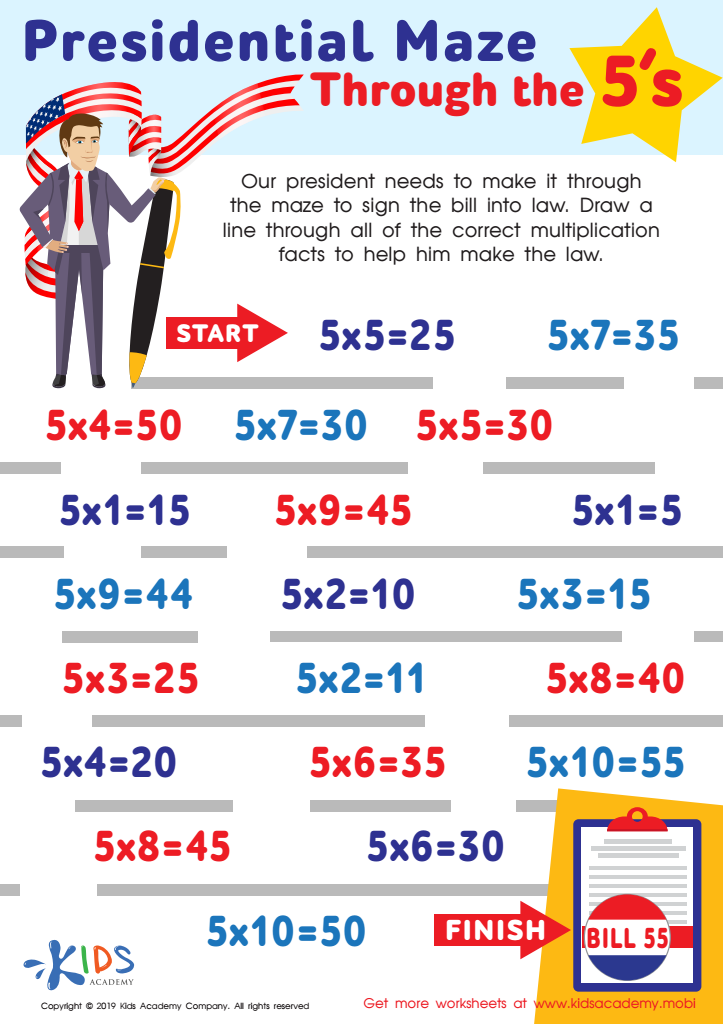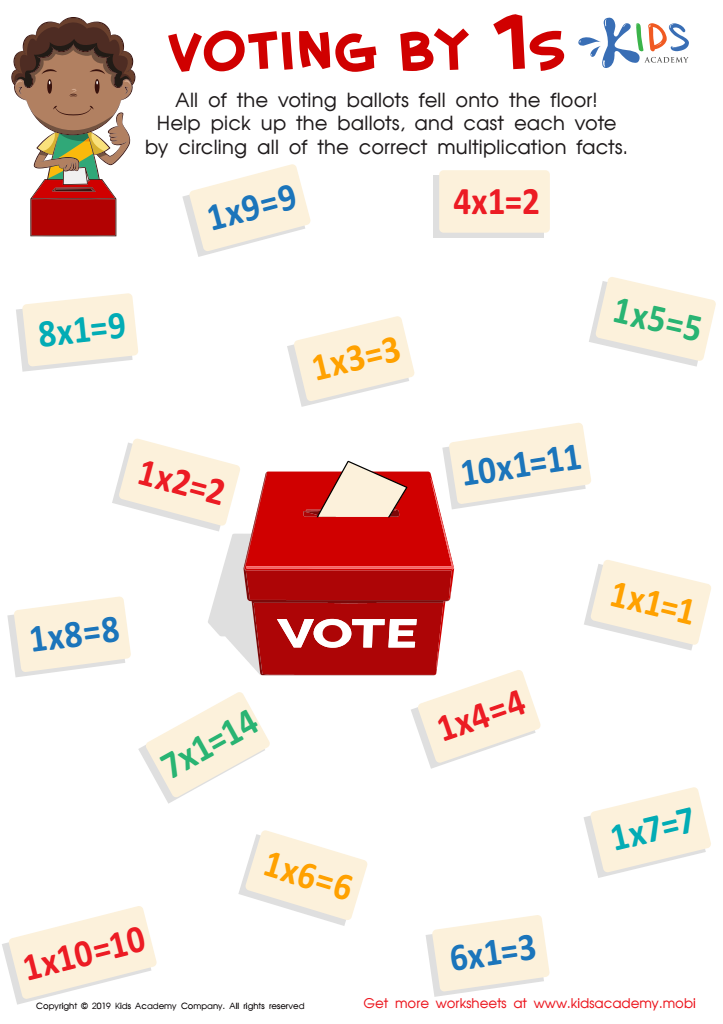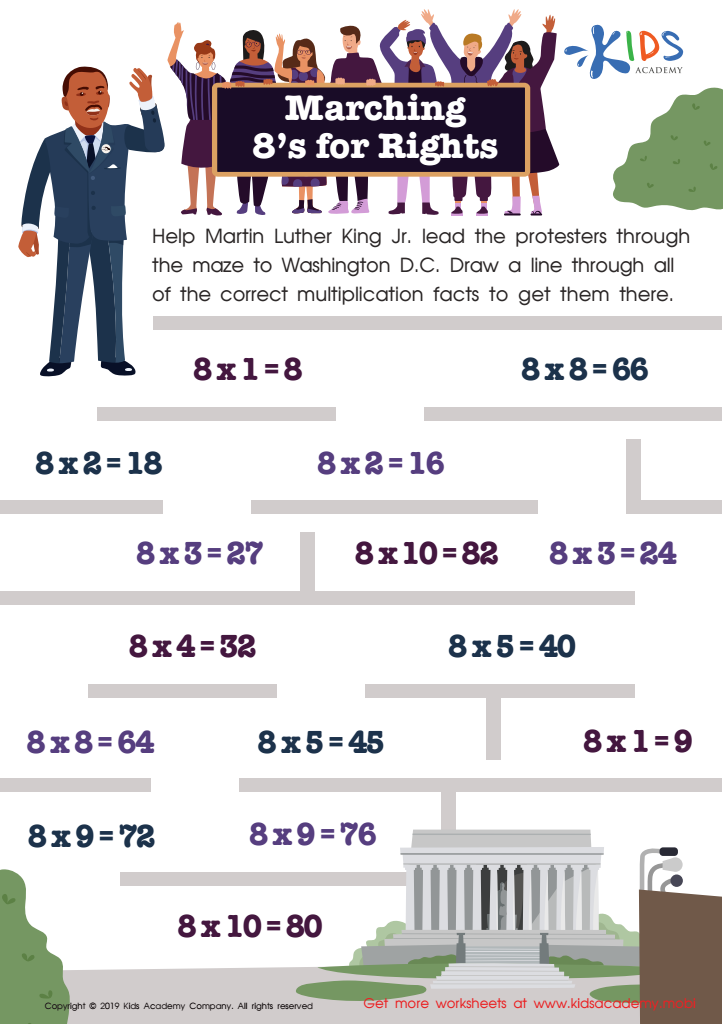Counting skills Governance and Civics Worksheets for Ages 5-9
3 filtered results
-
From - To
Explore our Counting Skills Governance and Civics Worksheets for ages 5-9! Designed to blend numeracy with fundamental social studies concepts, these printable worksheets support young learners in mastering counting while introducing essential governance and civics topics. Through engaging activities, children practice counting, critical thinking, and problem-solving as they learn about community roles, rules, and responsibilities. Perfect for both classroom and home use, these resources foster a deeper understanding of civic duties while enhancing early math skills. Invest in your child’s educational journey with our comprehensive, easy-to-use, and enriching worksheets.


Presidential Maze Through the 5’s Worksheet


Voting by 1s Worksheet


Marching 8’s for Rights Worksheet
Counting skills, governance, and civics form a trifecta of essential knowledge areas, pivotal to the development of children aged 5-9. Both parents and teachers should prioritize these skills for several critical reasons.
Counting skills lay the groundwork for numeracy, a vital component in daily life. Early proficiency in counting aids cognitive development and problem-solving abilities. Children who acquire counting skills can better grasp mathematical concepts, which is crucial for academic success across various subjects. Moreover, these skills foster a sense of achievement and confidence, motivating children to tackle more complex tasks.
Governance and civics education, on the other hand, helps children understand the world they live in. Early lessons in civics teach the basics of community, responsibility, and rights. They learn the value of participation, collaboration, and respecting rules, which are keystones of democratic societies. Understanding governance at a young age helps children appreciate the significance of fairness, justice, and leadership, forming responsible future citizens.
When parents and teachers emphasize these areas, they collectively nurture well-rounded development. Counting skills sharpen logical thinking and civics education boosts social understanding, ensuring children grow into informed, capable, and conscientious individuals. Integrating these teachings early paves the way for both personal and societal growth, making them imperative in early childhood education.

 Assign to My Students
Assign to My Students















